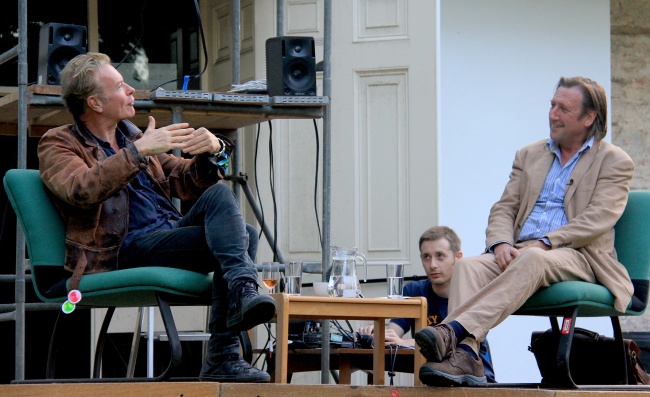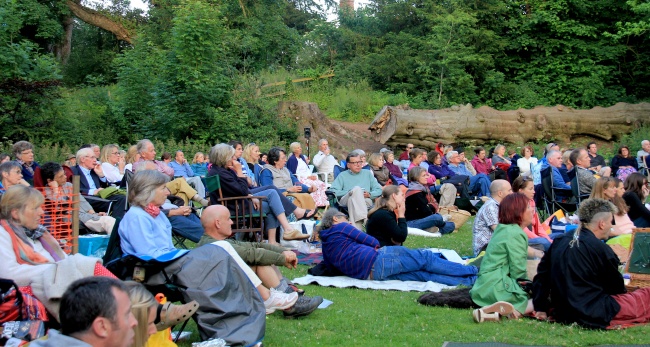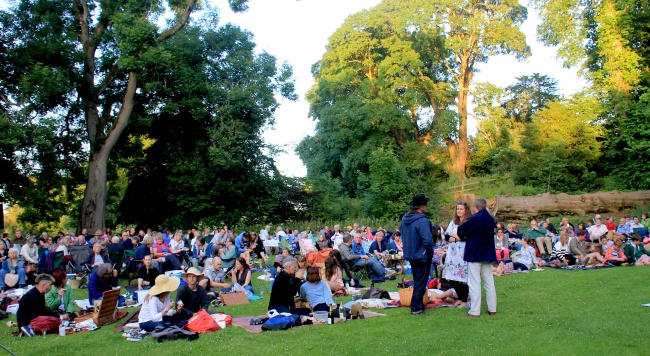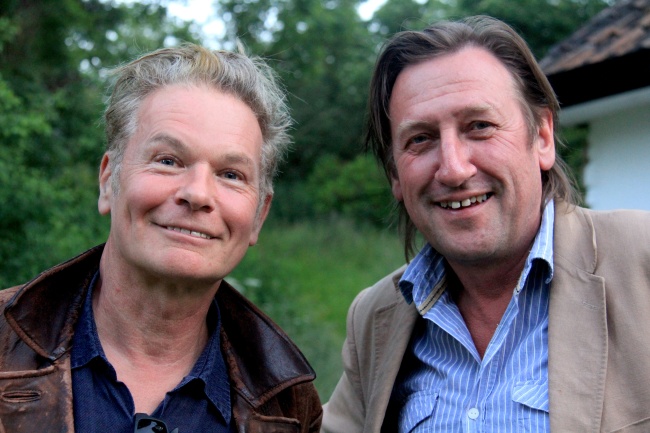Interview With Film-maker Julien Temple
by martinhesp
A week ago I interviewed film-maker Julien Temple at Fyne Court on the Quantocks in front of an audience of over 300 people. I was invited to conduct the interview by the Quantock AONB service, partly because his movie Pandaemonium dovetails in many ways with my own humble novel The Last Broomsquire.
There is an account of our talk in today’s Western Morning News, but here are some of the quotes I’ve transcribed from a recording I made…
“I am a Londoner but my father is from here so I spent a lot of time being dragged around in the footsteps of Coleridge, which I hated. I thought as soon as I could I’d have nothing more to do with it. But something must have got to me. At school I always found great excitement in reading Coleridge. I began to understand that he was talking across time – this was in the sixties and he seemed to be quite a contemporary figure at the time.
It was the boldness of the language and his sense of being alive. Somehow you are there with him in that moment and the glory and beauty of the Quantocks and being alive in that place in either your moment or his moment seemed to merge.
We had a cottage in Holford for a long time – paid for by the Rolling Stones actually, or a movie we did with Mick Jagger. After some time in America we brought our kids back here and it was fantastic – our kids thought they were on Mars or something because it was all flooded.
The idea for the film – I loved these hills and the idea of putting them onto the screen always appealed to me. Having worked with people like The Kinks and the bothers in that Kinks and how often that incredible tension – and the same with Mick and Keith and the Stones – and there was a sense I’d seen that in living action and I could inform the way in which looked at the relationship between Coleridge and Wordsworth – combining that with my childhood memories of these walks. Obviously making a film is not like you’ve already done it when you want to do it – you have to make it happen.
Humphrey Jennings, I think, was one of the really great English filmmakers – I’ve always been greatly inspired by him and he did do this book about the industrial revolution which I think you have to understand was the context or backdrop for Coleridge’s presence in the Quantocks – he was in way leaving behind a world where that was all beginning to coalesce and change the world. I don’t think he was uninterested in that, but he did want to have a perspective on it so he came to the Quantocks and brought Wordsworth here. So this book is a wonderful book about how people lives were changed by this increasingly accelerating Industrial Revolution which sept the world and made Britain a superpower.
I was very excited about this book – I didn’t want to make a costume drama – I wanted to make a film about guys who just walked away from a costume drama and went to the hills a bit like Withnail and I – and they were – they were the first guys to rip off the powdery wigs and the silken stockings and wear trousers. They ere very different in the way they saw themselves compared to the ruling establishment of the time.
The connection with the opening of the Olympic ceremony is that the wonderful writer of this film Frank Cottrell Boyce who is a friend of mine. I gave him this book and he gave it to Danny Boyle – so the chimneys coming out of the ground at the Olympic Stadium in a way come from this weird Quantock film. So I think it’s such a wonderful he did with that – it really did made a symbol about our history.
Change is inspiring – it is negative and positive – all of it.
It was a sense of seeing the world anew – I think the people who were here at the end of the 18th century when the industrial revolution was accelerating at such an extraordinary pace – that people who thought about it were suddenly able to see into the future in a weird way and I think there are a lot of things about Coleridge particularly but also his group of friends that there poetry is like the impressionist painters 80 years alter – they’re doing in words what Renoir and Pissarro and Monet did 80 years later.
Andrew Crosse was the basis for Frankenstein – Mary Shelley went to see him lecturing in London – he used to sit in this room with copper wires bringing the lightning storm into his laboratory where he would blast larvae and pupae with millions of volts of electricity and suddenly they became insects. So he was the man who invented life and there was a Victorian scandal about what he was doing. Here story was based on the electrician who has the most wonderful grave here in Broomfield – the obelisk just says The Electrician but if you go there on a stormy night – it is a brilliant thing to do actually – if there is a lightning storm go up there straight away…
Soon I hope to put up the full 45-minute audio of the interview in this blog if people are interested.





Yes please, of course we’d like to see the video. I wish I’d come along to the event.
[…] Martin Hesp, Journalist – Author […]